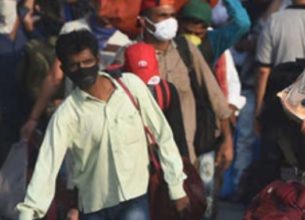WHO NOT TO DECLARE SARS-COV-2 A PANDEMIC
29, Feb 2020

Prelims level : Environment- Disaster & Disaster Management
Mains level : GS-III Disaster and Disaster Management
Why in News?
- WHO Director-General Tedros Adhanom Ghebreyesus made it abundantly clear that WHO will not declare COVID-19 a pandemic at this moment.

Highlights:
- A pandemic is defined as the worldwide spread of a new disease. The last pandemic reported was the 2009 H1N1 flu pandemic, which killed hundreds of thousands globally.
- According to 2017 pandemic influenza risk management guidelines, the WHO uses pandemic influenza phases, interpandemic, alert, pandemic and transition, to reflect its risk assessment of the global situation regarding each influenza virus with pandemic potential infecting humans.
- Fourteen countries have managed to contain the spread of the virus and no new case has been reported for more than a week. And nine countries, including India, Nepal and Sri Lanka, have not reported any additional cases in the last two weeks.
- This highlights that the virus can be stopped in its track if countries take appropriate and timely actions. Except Antarctica, novel coronavirus cases have been reported from all continents.
- In the past week, 20 countries have confirmed their first coronavirus cases. South Korea has the most number of confirmed novel coronavirus infections, 1,766 (and 13 deaths) outside mainland China. Italy (528), Iran (245) and Japan (189) are the other countries with most number of cases.
Measures to Stop Spread:
- The priority should be to detect cases early and isolate people who test positive for the virus. Once a case is detected, the focus should be to trace the contacts and treat them if already infected.
- Though the average incubation period is five-seven days, a few have shown up symptoms at the end of 24 days.
- Efforts should also be focussed on preventing outbreaks in hospitals and spread in the community.
- One way to stop the spread in the community is to avoid mass gathering in enclosed spaces.
Coronavirus:

- This is a new coronavirus that has been identified for the first time in the city of Wuhan, the capital of the Hubei Province in mainland China.
- It was identified after people developed pneumonia without an evident cause and where current vaccines and treatment methods were not effective.
- There have been around 40000 people infected with the virus in China. There have also been over 1000 fatalities there, exceeding those from SARS.
- A handful of cases have also been reported outside China, in Australia, Thailand, France, the US and a few other countries as well. India reported its first case towards the end of January 2020.
- There is not much known about the new coronavirus, which has been designated 2019-nCoV.
- It is considered a novel virus outbreak because the virus is novel (new – not seen earlier)
















